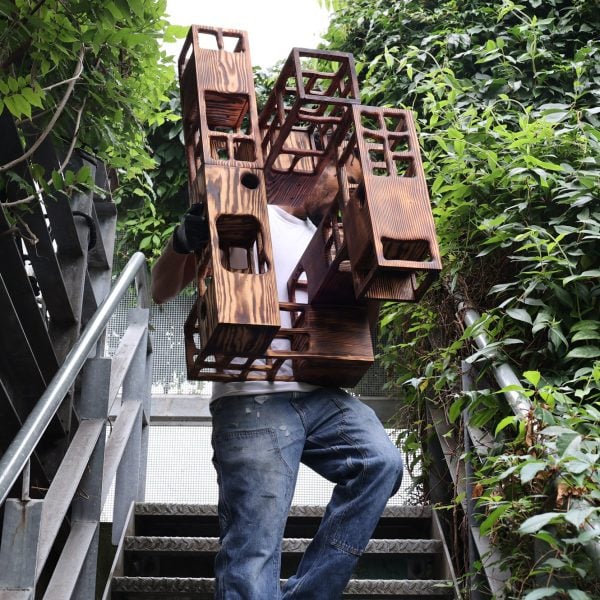Andu Masebo and Rio Kobayashi are among 23 designers who have created birdhouses for an exhibition held at South London Gallery that aimed to unpack “what it means to build a house for a bird”.
Conceived by design studio Computer Room and birdwatching collective Flock Together, the Dwellings project focused on shared themes of sanctuary and exploring our relationship with nature.
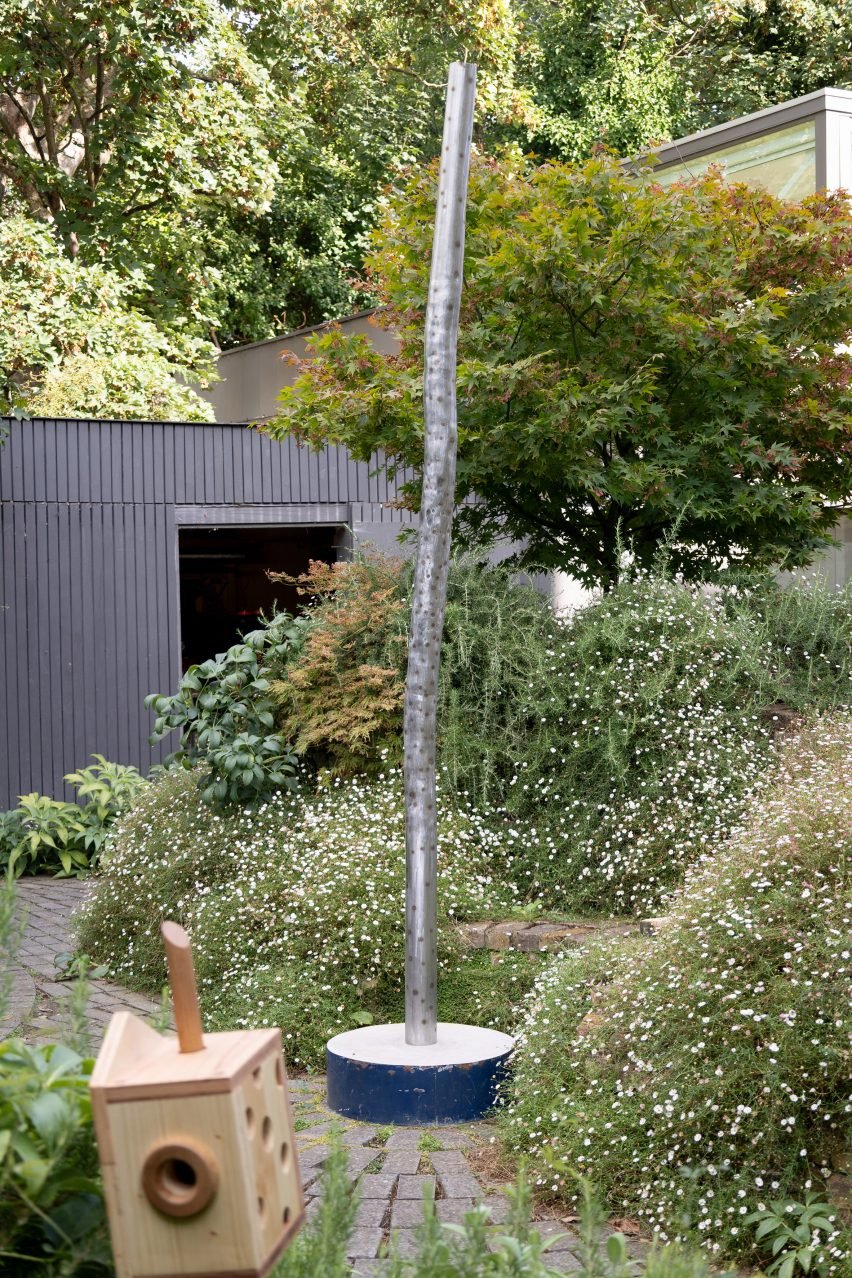
The exhibition held in the Orozco Garden and Clore Studio at South London Gallery from 31 August to 1 September 2024 comprised an eclectic series of 22 objects and images, ranging from practical solutions to expressive conceptual responses.
The varied contributions encapsulated the unique thought processes and skills of makers including ceramicists, glassmakers, architects and photographers.
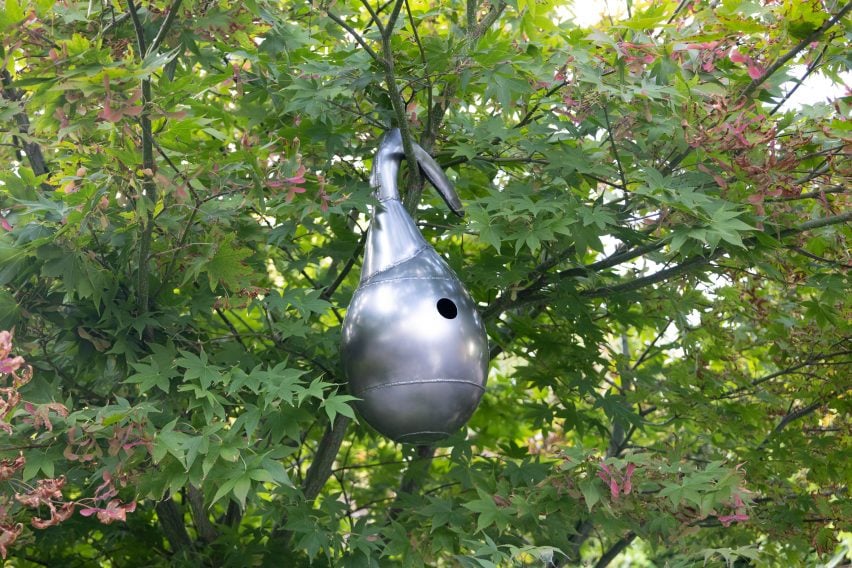
Many of the designers created their own takes on conventional birdhouses, which are typically made from wood and feature a hole just large enough to provide an entrance for the nesting birds.
Other participants opted for a more abstract approach, such as artist and designer Moe Asari’s site-specific project exploring the attempts to reintroduce black kites to a Dutch nature reserve.
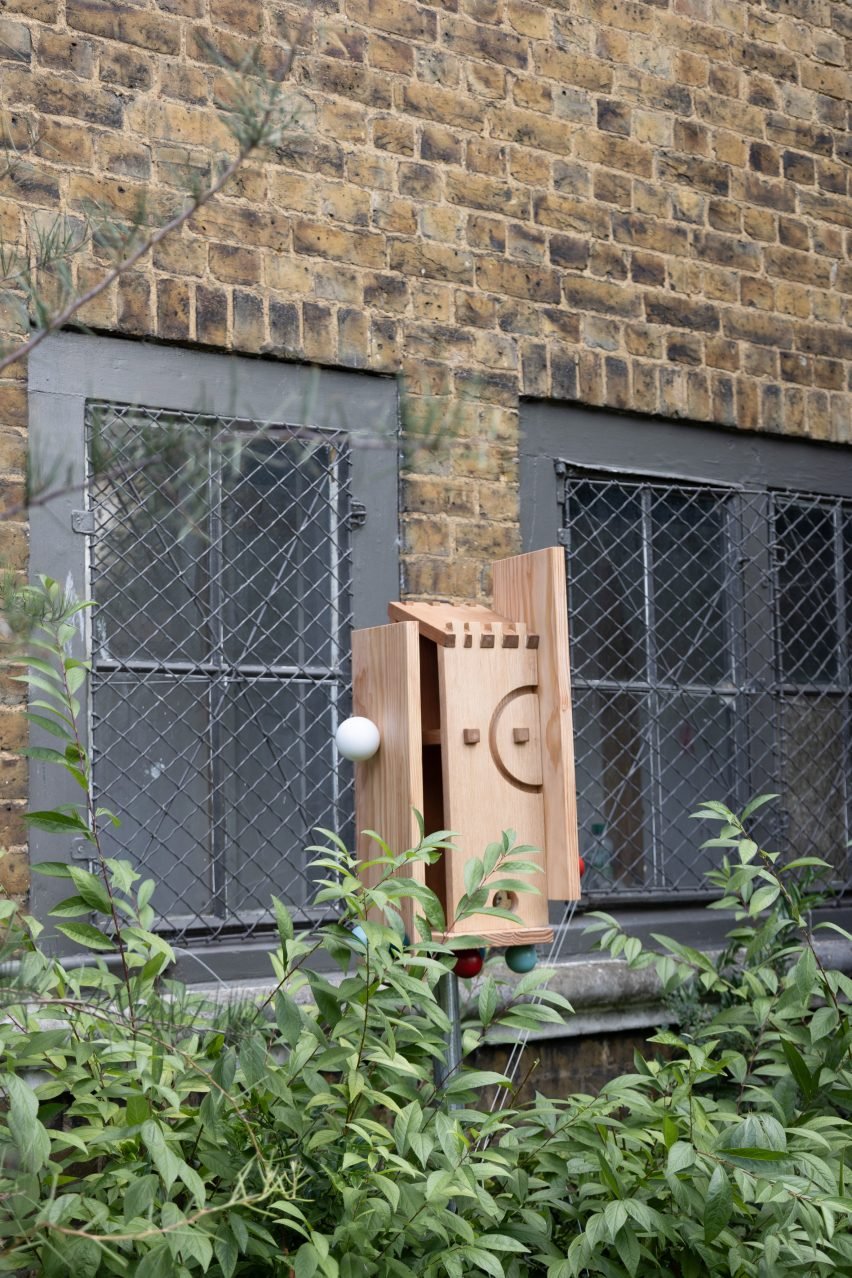
The show’s co-curator Masebo, who runs the Computer Room design collective alongside Jesse Butterfield and Charlie Humble-Thomas, developed a birdhouse via a remote collaboration with his uncle Dan O’Conell – a trained carpenter based in Ireland.
Without conversing throughout the process, Masebo and O’Connell sent materials back and forth between London and Ireland, each making their own alterations until an object with the form of a birdhouse emerged.
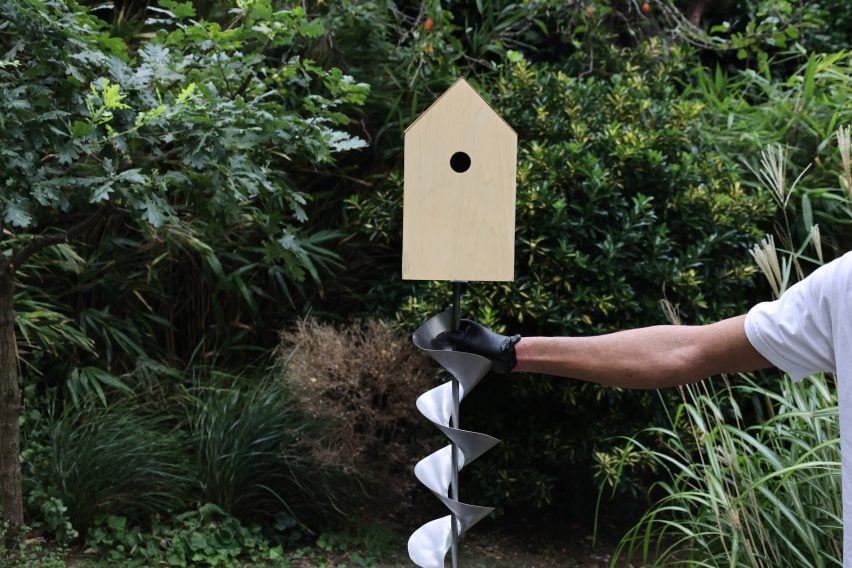
Butterfield’s contribution to the exhibition is a wooden structure informed by skyscrapers and modernist architecture. Bird Metropolis provides space for eight nesting house sparrow couples within a tower carved into organic, tree-like forms.
London and Copenhagen-based designer Daniel Schofield’s birdhouse uses renewable cork bark as an alternative to wood, which he suggested is an odd choice of material as it requires cutting down a bird’s natural home to create an artificial one.
“The form and proportions were chosen to be good for birds,” said Schofield, “but also simple to produce industrially and locally, hopefully giving more chance of these being made en-masse, and giving the best opportunity of making more homes for birds in our urban landscape.”
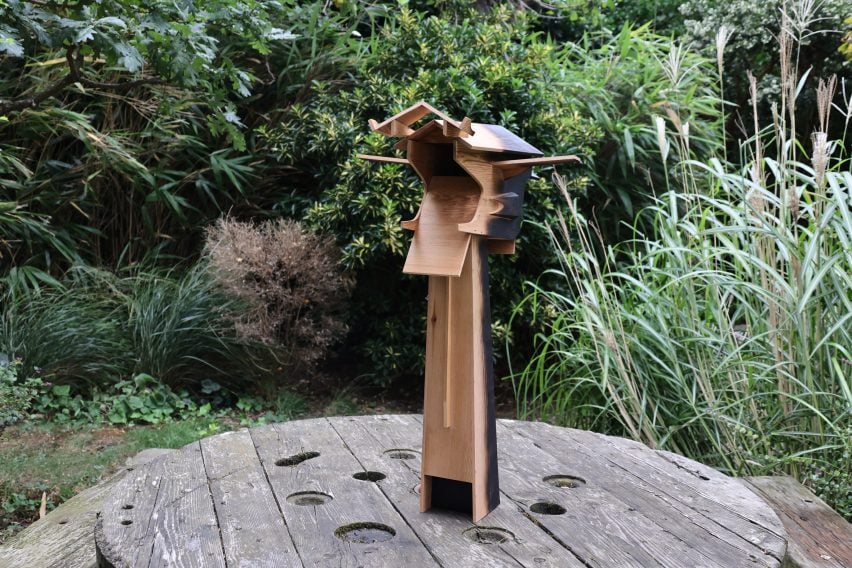
Kobayashi’s playful response to the brief called The Guest House For An Ostrich is elevated to an appropriate height so an ostrich could hide its head inside rather than burying it in the ground.
The birdhouse features an aerodynamic form and details that reflect the ostrich’s ability to run at great speeds. Its front surface is scorched to give the impression that aerodynamic friction has set the wood alight.
Ceramicist George Baggaley created a birdhouse in his signature organic style, which is embellished with glazes that accentuate its undulating surfaces.
Ovulo by Jaclyn Pappalardo features a welded form reminiscent of shapes found in nature. The curved profile with a hook at one end for suspending it from a tree branch was produced using a process that involves inflating metal using water.
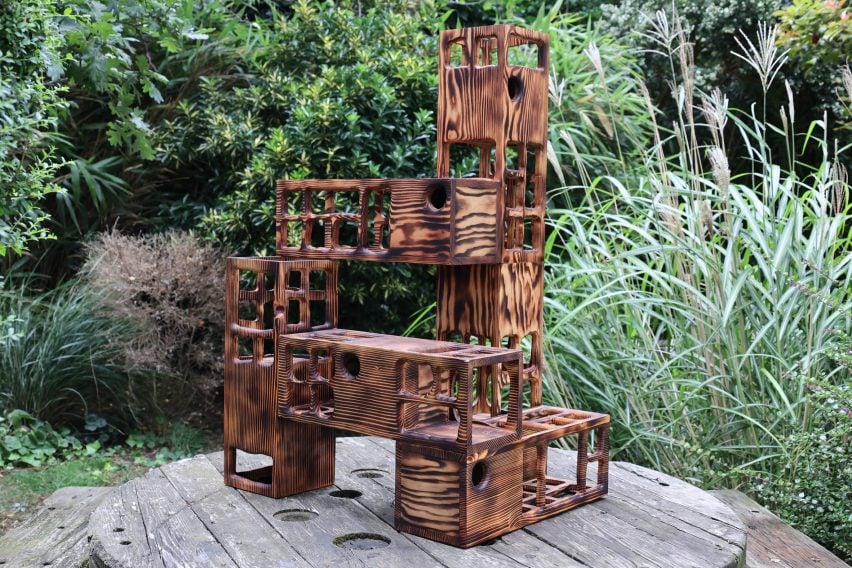
Oliver Hawkes worked with a charity called Global Generation to build birdhouses using material offcuts donated by eyewear brand Cubitts. The project aimed to engage young people in the making process and educate them about issues relating to the environment and bird cohabitation.
Many of the pieces created for the exhibition were available to purchase, with all proceeds helping to support South London Gallery’s communities and learning programmes.
The photography is courtesy of Computer Room and South London Gallery.

